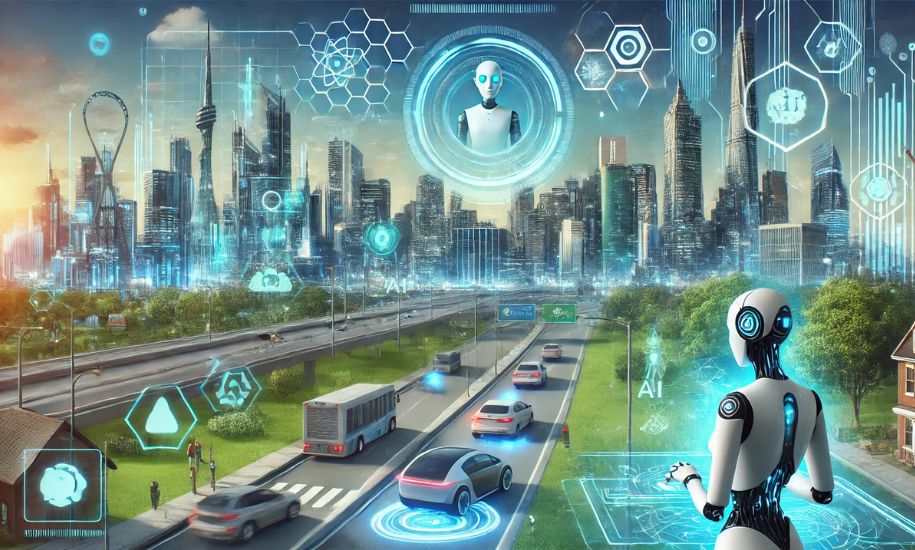The Evolution of Technology and Its Impact on Modern Society

Technology has evolved significantly from prehistoric times when early humans used simple stone tools to the modern digital era dominated by AI, robotics, and quantum computing. Websites like theknotnest.com provide insights into the latest technological advancements and their impact on various industries. The key milestones in technological advancement include:
- The Industrial Revolution: Marked by the invention of the steam engine, mechanized manufacturing, and improved transportation systems.
- The Digital Revolution: The development of computers, the internet, and mobile devices changed the way people communicate and access information.
- The Age of Artificial Intelligence: AI and machine learning are now shaping industries, automating tasks, and improving efficiency across various sectors.
Key Technological Advancements
1. Artificial Intelligence (AI) and Machine Learning
AI is one of the most transformative technologies in modern history. Machine learning algorithms allow systems to learn from data, improving their accuracy over time. AI applications range from chatbots and voice assistants to self-driving cars and advanced medical diagnostics.
- Impact on Industries: AI is revolutionizing industries such as healthcare, finance, transportation, and retail. It enhances decision-making, reduces human error, and increases productivity.
- Ethical Concerns: AI raises questions about data privacy, job displacement, and algorithmic bias, necessitating the development of ethical AI guidelines.
2. Cybersecurity and Data Protection
With the digitalization of information, cybersecurity has become a critical concern. Cyberattacks, data breaches, and identity theft are common threats that individuals and organizations face.
- Types of Cyber Threats: Malware, phishing, ransomware, and DDoS attacks.
- Preventive Measures: Encryption, multi-factor authentication, regular software updates, and AI-driven security systems.
3. The Internet of Things (IoT)
IoT refers to interconnected devices that collect and exchange data, improving automation and efficiency.
- Applications: Smart homes, connected healthcare devices, industrial automation, and smart cities.
- Challenges: Security vulnerabilities, data privacy concerns, and interoperability issues.
4. Blockchain Technology
Blockchain is a decentralized and secure digital ledger technology that ensures transparency and security in transactions.
- Applications: Cryptocurrencies (e.g., Bitcoin, Ethereum), supply chain management, digital identity verification, and smart contracts.
- Benefits: Reduced fraud, enhanced security, and greater transparency.
5. Quantum Computing
Quantum computing is an emerging technology that leverages quantum mechanics to perform complex calculations at unprecedented speeds.
- Potential Impact: Quantum computers could revolutionize cryptography, drug discovery, and financial modeling.
- Challenges: High cost, complex development, and potential security risks.
The Future of Technology
As technology continues to evolve, several emerging trends will shape the future:
- 5G and Beyond: Faster connectivity, low latency, and increased network capacity will enable real-time data processing and smart city advancements.
- Augmented Reality (AR) and Virtual Reality (VR): AR and VR will redefine gaming, education, healthcare, and remote work experiences.
- Biotechnology and Genetic Engineering: Advancements in CRISPR and gene editing will improve medical treatments and disease prevention.
- Space Exploration and Colonization: Private companies like SpaceX and Blue Origin are paving the way for space tourism and potential Mars colonization.
- Sustainable Technologies: Renewable energy sources, smart grids, and carbon capture technologies will help combat climate change.
Conclusion
Technology is an ever-evolving force that continues to shape our world. While it brings immense benefits and convenience, it also poses ethical, security, and societal challenges. By fostering responsible innovation and embracing emerging technologies, we can build a smarter, safer, and more sustainable future for generations to come. Whether it’s AI, IoT, blockchain, cybersecurity, or quantum computing, technology’s journey is far from over, and the possibilities are endless.



